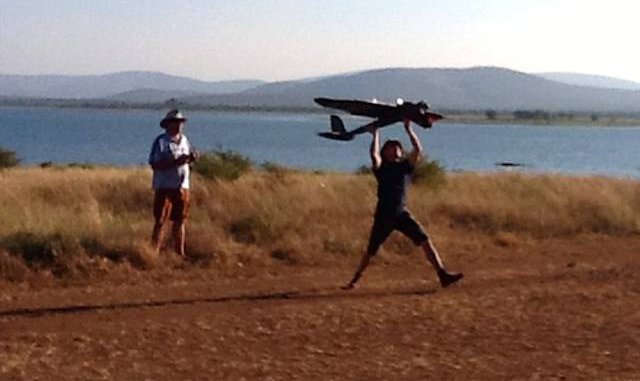Rhino protection efforts in Ezemvelo KZN Wildlife reserves in South Africa received vital support this month with the launch of the Air Shepherd UAV (unmanned aerial vehicle) project – a partnership between the Lindbergh Foundation, Peace Parks Foundation (PPF) and the provincial conservation agency.
This project funds and co-ordinates an initial 14 month plan for the operational testing and deployment of unmanned aerial vehicles (UAVs) as an aerial support tool to assist counter-poaching teams on the ground.
As poachers become increasingly sophisticated, conservation agencies in turn have to level the playing field with technology that transcends human limitations and spatial challenges.
Ezemvelo chief executive Dr David Mabunda said: “Ezemvelo is excited about the Air Shepherd project. It is my belief that to fight the scourge of rhino poaching we need to be more innovative and never cease investigating the potential of emerging technologies.
“Although there is no one method that will be the silver bullet putting an end to poaching, UAVs usefully complement the multi-pronged counter-poaching strategies Ezemvelo is implementing.
“To succeed in this war, Ezemvelo depends on partnerships with various organisations with the time and means to assist in developing new methods to fight poaching. These partnerships are critical as they enable Ezemvelo to redirect its resources to other conservation areas while our partners focus on coming up and piloting new strategies to fight this plague.”
The Air Shepherd operations will see a variety of aerial platforms flown in high risk poaching areas by qualified and licensed UAV pilots. The UAVs are fitted with cameras and sensors that deliver real-time data directly to a central command centre, where trained visual data analysts interpret the data – providing actionable intelligence to ranger forces.
UAVs can cover poaching hotspot areas silently and safely from the sky, using clear infrared and thermal imaging technology at night – when most incursions occur.
Much of the value of proactive detection systems such as UAVs is in the capability to reduce the level of danger rangers are exposed to, PPF chief executive Werner Myburgh said.
“Patrolling with severely limited visibility at night, rangers are subjected to the threat of wild animals and armed poachers. Effective UAV support can guide rangers directly to the threat and also provide advance warning of possible armed contact situations. This will prevent unnecessary loss of life – both human and animal.”
He congratulated the provincial conservation agency for the “pioneering spirit” it has adopted with regard to wildlife crime.
Source: Defence Web


Drone Anti-Poaching operation – Tanzania
https://www.youtube.com/watch?v=OvRA8aWttq4